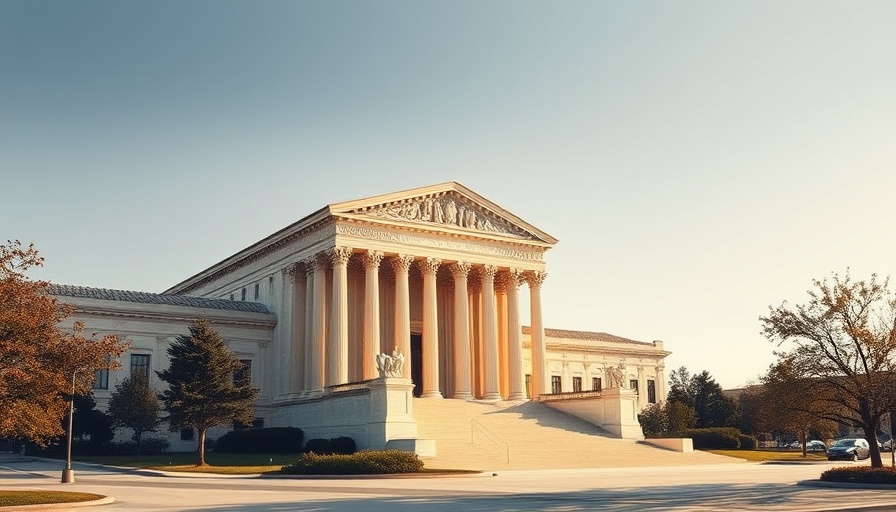
Supreme Court Reconsiders Nuclear Waste Storage Rules amid Controversy
The ongoing debate surrounding nuclear waste storage has taken center stage as the U.S. Supreme Court deliberates on a pivotal case that could reshape the future of how the nation manages its nuclear waste. The case under review involves a proposal to temporarily store nuclear waste at sites in Texas and New Mexico, and the justices are grappling with significant legal and safety concerns that can influence the country's long-term strategy for dealing with this pressing issue.
Historic Context of Nuclear Waste Storage in the U.S.
Nuclear energy, while essential for contributing to the U.S. energy portfolio, has come hand-in-hand with the conundrum of how to safely manage and dispose of spent nuclear fuel. The infamous Yucca Mountain project in Nevada, originally envisioned as a permanent solution for high-level waste, has become a symbol of governmental inadequacy in addressing this concern. Over the years, massive public opposition, legal challenges, and shifting regulations have led to Yucca Mountain’s continued stagnation.
Why This Issue Matters to Americans
As the Supreme Court weighs the legality of proposed temporary storage facilities, the ramifications are extended across states and communities. Over 100,000 tons of spent nuclear fuel are currently stored at various locations, including aging plants that are at risk of failing safety inspections. For residents living near potential storage sites in Texas and New Mexico, the stakes couldn't be higher; they face a tense dilemma of safety versus energy needs.
Political Implications and Public Opinion
This Supreme Court case isn’t just a matter of legalities; it reflects a complex political landscape. Bipartisan opposition from leaders like Texas Governor Greg Abbott and New Mexico Governor Michelle Lujan Grisham underscores the widespread hesitance to accept temporary nuclear storage as a viable solution. The justices' decision has the potential to either facilitate the pressing need for a storage solution or to further delay action while ultimately jeopardizing public safety.
The Uncertainty of a Permanent Solution
One of the major concerns raised during the Supreme Court hearing relates to the prospect of these temporary sites morphing into de facto permanent solutions. With licenses for storage lasting up to 40 years and the potential for renewal, the justices have expressed doubt regarding the government’s capacity to fulfill previous commitments toward finding a lasting answer for nuclear waste disposal.
What’s Next For Nuclear Waste Storage?
The concern extends beyond immediate safety and legal rulings; it also taps into national pride as the U.S. approaches its 250th anniversary. Justices such as Sonia Sotomayor voiced hopes that the country can progress on unresolved issues such as this one, describing the case as a modern challenge that could shape the narrative of future generations.
Decision Time Approaches
As the Supreme Court prepares to deliver its ruling—expected by late June—the urgency surrounding nuclear waste management becomes increasingly palpable. Deciding the fate of facilities in Texas and New Mexico may not only influence the nation’s nuclear policies but could also set precedential rulings that define how regulatory agencies interact with private energy companies in the future.
What Can Citizens Do?
The ongoing discussions highlight the importance for citizens to stay informed about nuclear waste issues in their areas, engage in community dialogues, and voice their opinions to local lawmakers. While nuclear energy plays a critical role in the nation’s energy grid, how the waste is managed remains a collective responsibility that requires public input and scrutiny.
In conclusion, as the Supreme Court deliberates on this critical case concerning nuclear waste storage, it’s a time for mixed feelings and hopes. With the implications of their decision reaching far beyond legal confines, this story is sure to remain in the national spotlight as citizens across the country watch attentively.
 Add Element
Add Element  Add Row
Add Row 



 Add Row
Add Row  Add
Add 


Write A Comment